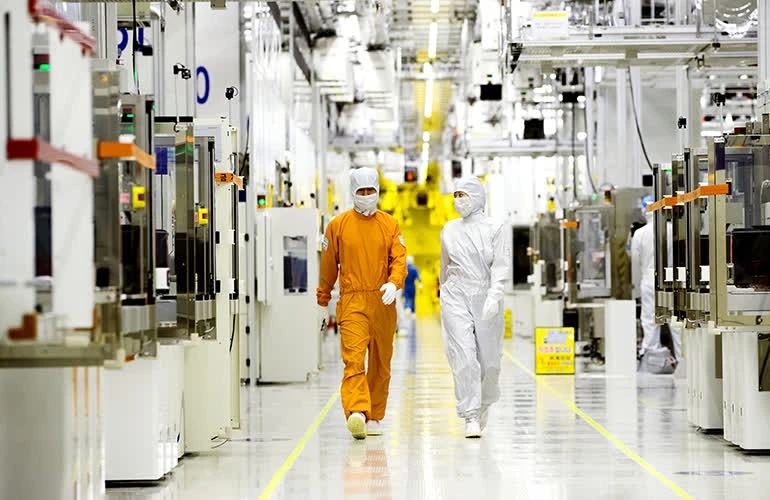The Future of Manufacturing: Samsung’s Move Towards Fully Automated Fabs
In a surprising turn of events, Samsung, the South Korean electronic giant, has revealed its ambitious plan to transform its fabrication facilities into fully automated, human-free plants within the next six years.
Automation in Semiconductor industry
Samsung Electronics has taken a massive stride in the semiconductor manufacturing industry by introducing a proprietary Smart Sensing System, aimed at enhancing chip yield and streamlining production processes. This innovative technology represents a significant leap towards fully automated manufacturing.
The Role of Smart Sensors
The Smart Sensing System developed by Samsung Electronics is designed to measure plasma uniformity for wafers, ultimately influencing the efficiency of critical processes such as etching, deposition, and cleaning. Notably, these smart sensors, manufactured in South Korea, enable seamless integration within the existing facilities without significant spatial constraints.
Implications for Workforce and industry
While this transition to advanced automation holds promise for Samsung, it raises concerns regarding its impact on employment. The potential for fully automated facilities may lead to a substantial reduction in the workforce, which currently spans across 74 countries and employs more than 270,000 individuals.
Comparison with amazon‘s Automation Efforts
This move by Samsung aligns with a broader trend of automation across industries. amazon, a global leader in e-commerce, has been at the forefront of warehouse automation initiatives, employing advanced machines such as Sequoia and Digit to optimize inventory management and order processing.
Challenges and Ethical Considerations
The adoption of fully automated manufacturing facilities raises ethical questions and concerns about the potential displacement of human workers. As companies embrace Artificial Intelligence and automation, the broader implications for employment and livelihoods must be carefully analyzed and addressed.
Impacts of Automation on Employment
The proliferation of AI and automation technologies has sparked discussions about the future of employment. With visionary figures like Elon Musk predicting a profound shift towards automation, the potential consequences for global employment patterns are under intense scrutiny.
Addressing the Human Element
While seeking efficiency and Innovation, it is imperative for companies to recognize the significance of human labor and provide avenues for upskilling and adaptation in the face of automation. Balancing technological advancements with social responsibility remains a critical aspect of this transition.
Conclusion
Samsung’s endeavor to establish human-free, fully automated fabs represents a paradigm shift in the manufacturing landscape. As the industry progresses towards automation, it is essential to approach this transformation with thoughtful consideration for its wide-ranging impacts on the workforce and society at large.
For the latest updates on Samsung’s automation initiatives and the evolving landscape of semiconductor manufacturing, refer to the original article.
Source: techspot








No Comments